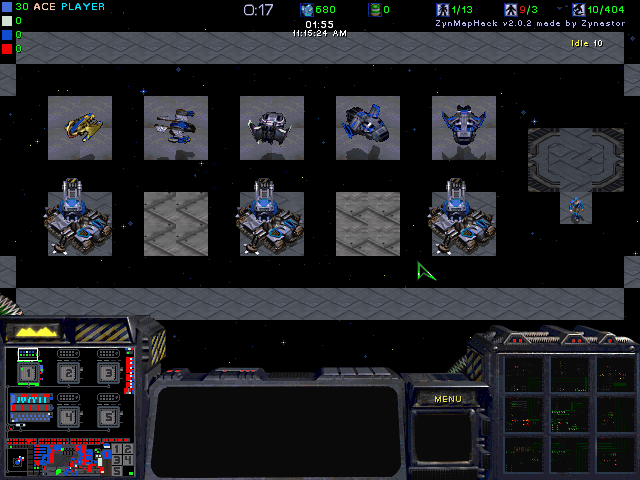In this article are compiled the result of years of research by the learn2holdem.com team. Here are the top ten secrets which are the necessary foundations for successful profitable online poker.
Apr 06, 2007 Physicist Unlocks Secrets of Texas Hold 'Em. University of Toulouse, France, published his work Universal Statistical Properties of Poker Tournaments on arXiv.org. He used real data from.

- Use Sound Bankroll Management
- Focus on Making Good Decisions
- Raise or Fold, do not Call
- Make Continuation Bets
- Make Value Bets
- Use Software Tools
- Review Your Hands
- Don't be Emotional
- Use Position
- Don't be Predictable
- Get Rakeback
Many poker pros have wild swings and end up bankrupt. Correctly managing your bankroll is the most important skill in poker. Play lower limits when you lose and only attempt higher limits after a good run. Do not be afraid to change limit up and down as frequently as necessary. Always play in games that you can afford.
Good decisions in poker do not always lead to a profit. The statistical poker edge of a good decision is sometimes just a few percent chance, so that you will lose nearly as often as you win when following your decision. Do not let results affect you. Just focus on making the good decision and profits will follow.
This rule can be hard to follow literally, but it should be your goal to get as close as possible. The weakest decision in poker is calling, which is synonym with passive play. Avoid it like the plague. If your hand is strong you must take the lead by betting or raising. Otherwise, just fold.
It is vital to make continuation bets otherwise it is like telegraphing that you missed the flop. Make your c-bets against solid observant opponents, but be more cautious against calling stations. The optimal c-bet rate is around 70-80%. A lower rate makes you too transparent whilst a higher rate makes you too much of an obvious bluffer.
A lot of your potential profits come from value betting, especially river value betting. Value betting consists in making bets, hoping to get called by a weaker hand. It requires good hand reading skills and also courage because there is always the risk to be raised, check-raised, bluff-raised or shoved.
Online poker is a very competitive game and you must use the software tools that your opponents are using. Poker tracker systems are mandatory. Odds calculator, online database and poker coaching tools can also help. Check our poker software reviews for a complete list of what is currently available in the market.
After each poker session that you play, try reviewing your hands with a hand replayer software. Analyze your mistakes and determine alternative ways it could have been played. If time is short, focus on the biggest losses and profits of your session. Post your most confusing hands on online poker forums to generate comments or discuss them with your poker buddies.
You must develop the mental strength necessary to always play analytically, and not emotionally. Your emotions are your enemies at the poker tables. Your emotions will almost never make you money at poker, but very often will make you lose money. If you take a bad beat and start tilting, just leave the tables.
Position is often more important than your hole cards. Make the most out of your position. Learn to bluff more in position and to fold more out of position. Steal aggressively from the cutoff and button. If in position, do not miss an oportunity to exert pressure on your opponents.
Do not play predictably. This sounds like a truism, but you have to introduce randomness into your game so that your opponents can never put you on a hand. Always have a few ways to play the same situation. For example when you have AA UTG, you may raise 80% of the time and limp 20% of the time in order to induce raisers. Use the seconds of your clock to make the decision. If the seconds of your watch are between zero and 12 you limp, otherwise you raise. If this sounds like it may be a problem to you, then you may be better off playing blackjack where you don't need to worry about being predictable or fooling other players.
This 11th item complements our #1 item: bankroll management is the most important secret to get a better win rate, and the simplest first step to improve your bankroll is to get rakeback. If you have not yet started a rakeback program, learn more here.
Good Luck at the tables.
I’m sure the title of this article caught your attention and I’m glad because in addition to the promise of the title, I’m going to give you a big bonus! However, I’m not going to give it to you right away - keep reading and I promise not to renege on my promise of a bonus. Pokerology.com is dedicated to the study of poker and helping its readers become successful at the game. Most poker players gauge success as winning, I know I do. Having access to all the information contained on this web site is a major upside for someone who desires to learn how to play poker or recognizes that they could improve their game. Of course this transformation does not occur by osmosis, there is much work to be done.
Whatever the endeavor, competitive people, certainly an attribute of poker players, wish to prevail. They desire to score the winning goal, pocket the most balls, hit the most bull’s eyes and take home the most coin of the realm. It has been said that the key to it all is not the will to win - we all possess that. It is the will to prepare to win that is critical. The will to prepare is where all the hard work starts - there is no osmosis technique for poker or any other endeavor. You may wish as hard as you want but if you do not possess the will to put in the work that is necessary, you will not succeed. You might in the lottery by getting lucky, but not in poker or most anything else.
The really terrific aspect of dedicating yourself to truly prepare to win is it will also result in good luck. Do you now think I’ve gone daft with that last sentence? I simply want you to focus to the reality of good luck occurring when preparation meets opportunity. If the opportunity arrives but you do not have a clue what to do about it, then success will elude you and that would be a pity. Dedicate yourself to absorbing the information presented here on Pokerology.com and then find an opportunity to put that knowledge to good use. Finding a nice soft game full on donks seems like a good idea!
Once you feel that you have become an accomplished student/player of the game, due in part to the Pokerology.com poker lessons, don’t become complacent. If you stop what should be a never ending process and think you know it all, you will begin to fall behind the legion of players that continue to grow in their knowledge of new strategies and perfection of various aspects of the game. After studying this poker course, reading the books offered up in the additional resource section, gaining lots of experience through playing time and discussing strategy with players whose games you respect, what do you do to keep getting stronger? Read on to find out.
You need to take stock of where you stand on the knowledge/experience curve relative to the poker games you have inhabited. This challenge can take some serious and honest introspection. It should go beyond an analysis of “Am I winning or losing?” In the short term your positive results could well be skewed by the favorable nod of the Poker Gods. This self analysis should also not be an overall report card but should be broken down into the many aspects of the game which are critical to winning play. Those elements should include hand reading skills, discipline, understanding and application of the mathematical aspects of the game, and understanding physical and spoken poker tells to name several. Now I’m going to go out on a limb but I believe even Doyle Brunson, who has been playing high stakes professional poker for over fifty years, is occasionally disappointed in his performance at the table. That having been said, if you cannot point to any aspect of your game that you don’t recognize needs improving - you are absolutely in denial. Ask a friend who’s opinion you trust to evaluate your play - you may be surprised at his observations.
Once you have thoroughly and honestly evaluated your strengths and weaknesses at the poker table, you need to set a plan of action. The plan should attack your weaknesses which, to be polite, we’ll call developmental needs. Once you have identified a developmental need you must set a goal to eliminate it or at least mitigate its negative influence on your game. You must strive to make these goals meaningful. A five letter acronym has been used to make sure goals are not too easy which would be a waste of your time. That acronym is SMART and should remind you to make your goals Specific, Measurable, Aligned, Realistic and Time related. Using this goal setting process can be extremely rewarding, improving your game in the areas that need honing. Also, your self esteem will improve as you will witness results that you and you alone made happen. In addition to these esoteric rewards, financial rewards should follow. Strengthening your skills through a self appraisal and goal setting process can’t help but produce enhanced results.

Well there you have it, the secrets of poker success - have the will to prepare to win and be honest enough with yourself to understand your own frailties and set realistic goals to improve upon or eliminate them. No, I didn’t forget about the bonus I promised you in the opening. I’m sure you have figured out for yourself - these same secrets can be used in all the challenges you face in life. Go ahead and try them, you’ll be a better person for it.
Related Articles
By Tom 'TIME' Leonard
Tom has been writing about poker since 1994 and has played across the USA for over 40 years, playing every game in almost every card room in Atlantic City, California and Las Vegas.
Poker Defense Nova X2

Leave a Reply
Poker Defense Nova X2 Secrets Game
You must be logged in to post a comment.